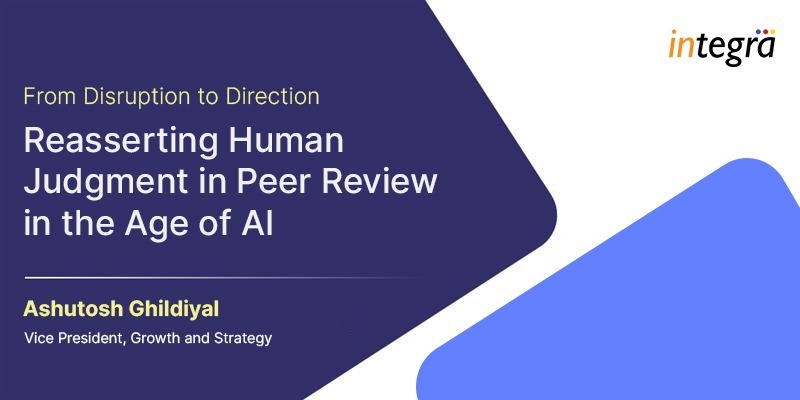Beyond Traditional Editing: How NLP is Redefining Workflow Management

The global Natural Language Processing (NLP) market is projected to reach $75.3 billion at an impressive CAGR of 42.4% from 2023 to 2028. One of the key drivers for the industry is “AI as a service,” which includes leveraging the power of cloud-based solutions. These solutions ease automated publishing workflows, which is propelling AI adoption in the publishing sector. Traditional publishing is plagued by manual delays and editing biases. It is becoming increasingly critical to transform operations to assert leadership in the intensely competitive publishing landscape. Adopting AI-powered publishing workflows can accelerate growth and provide a much-needed edge over the competition to publishers worldwide.
What is NLP: A Quick Primer
First introduced in the 1950s, NLP was an ambitious attempt at teaching machines to understand and produce human language. By the end of the 20th century, it had evolved to become one of the core elements of AI, enabling machines to interpret, manipulate, and comprehend human language. With its latest iteration, generative NLP, the technology has gone a step ahead of what was initially imagined by producing human-like sentences and holding conversations.
The evolution of NLP over almost 75 years has elevated text processing across industries. The publishing industry, which primarily relies on knowledge production, editing, and dissemination of information through textual modes, has been revolutionized with it. NLP now plays a central role in simplifying, automating, and streamlining workflows to accelerate and improve the quality of digital publishing.
Predictive Text and Grammar Suggestions
NLP models analyze massive data sets and memorize common phrases and their context. Using this knowledge, the technology assists writers by predicting the next word in common phrases, similar to what you see while typing an email on Gmail. The same technique is used to study syntax and morphology to suggest grammatical corrections. Based on the parameters of context and culture, NLP can also assist in adapting text to regional and demography-specific styles to enhance reader comprehension.
Semantic Analysis and Content Structuring
Natural language understanding (NLU), a segment of NLP, gathers the meaning of human language from context and flow of ideas. It uses phonology, semantic analysis, and discourse to uncover linguistic structures and relationships among sentences. These capabilities are crucial for long articles or longer publications, such as novels. NLP-powered language analysis tools facilitate the maintenance of flow, coherence, and consistency in language for large-scale projects where multiple authors and editors might be working together.
Automated Content Summarization
NLU clubbed with NLG (natural language generation), can summarize large datasets or novels in a matter of minutes. This is especially helpful when editors have to manage manuscripts involving authors’ native language or translations to regional languages.
Enhancing Collaborative Editing with NLP
The traditional editing process may take days or months and publications lose time in managing feedback and re-work. NLP-powered tools not only suggest corrections to expedite the process, but they also help make feedback and review real-time activities. These tools facilitate co-authoring and peer-review through collaborative manuscript processing. The activities of each user are tracked and managed independently, eliminating the administrative effort of versioning.
The Future of NLP in Editing: Predictions and Possibilities
The evolution of NLP and integration with deep learning and analytics has a promising future in the publishing industry. NLP-based editing tools will help publishers optimize publishing strategies, offer predictions of trends, and identify potential bestsellers, based on reader data. While automation of the entire editing cycle and marketing are lucrative avenues, NLP-powered translations will simplify knowledge dissemination at a global level to help publishers maximize discovery and hence revenue.
The adoption of AI-powered workflows has become an industry imperative, yet the lack of technically elite talent remains a prominent deterrent. The good news is that Integra’s experts are adept at helping publishers leverage intelligent publishing workflows through tailored technology transformation without the need to maintain large in-house technical teams. Schedule a call with the team to incorporate NLP-powered publishing workflow management.
Recent Blogs

Why LaTeX Still Matters in Scholarly Publishing—and How the Right Partner Makes All the Difference

Print, Pedagogy, and AI: The New Architecture of Educational Publishing


